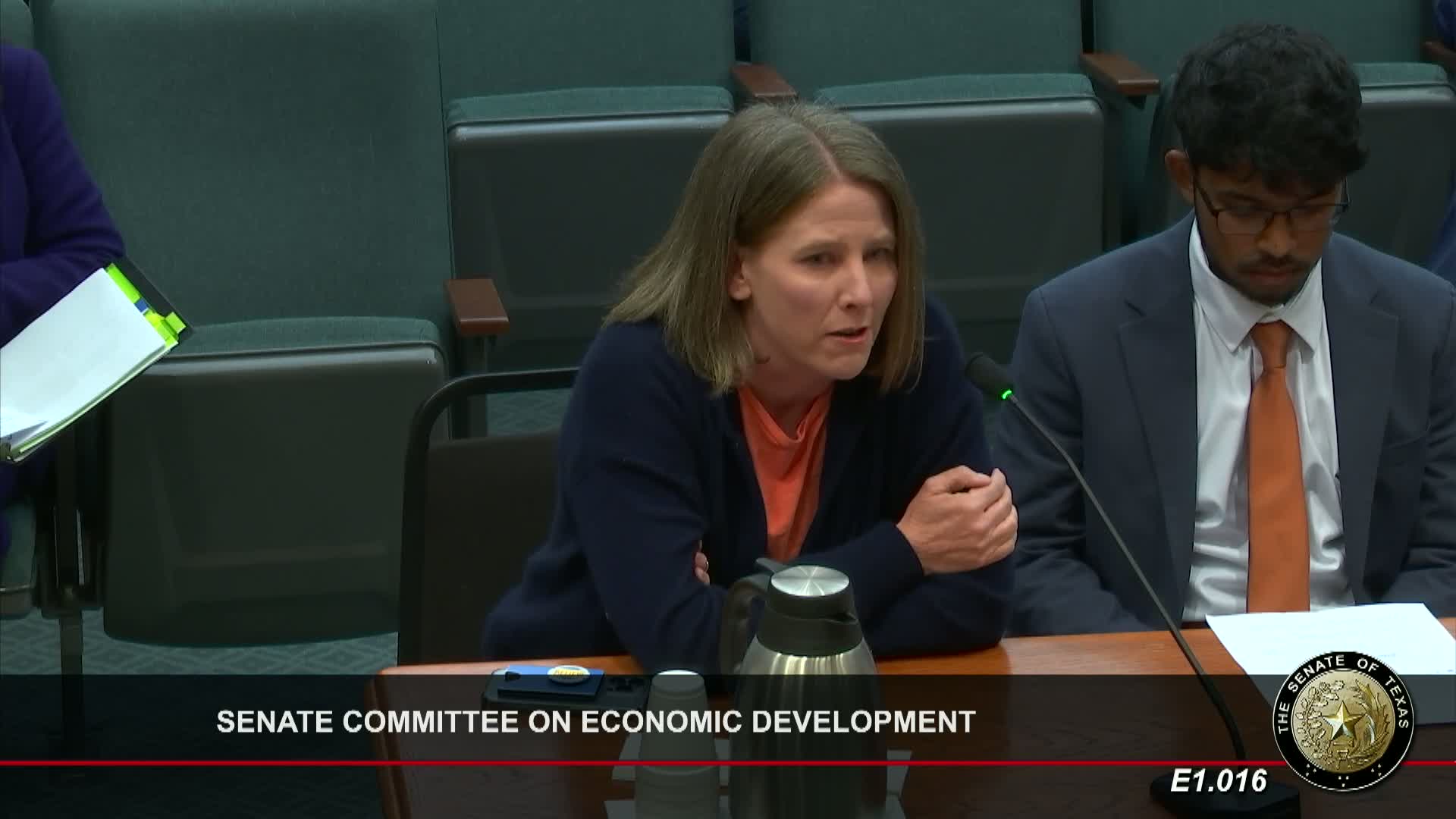Committee hears primer on Event Trust Funds, considers adding NRA and Arlington Grand Prix to reimbursement program
Get AI-powered insights, summaries, and transcripts
Subscribe
Summary
The committee received a primer from the Governor’s Office on the Events Trust Fund and the Major Event Reimbursement Program, and heard bills to include the National Rifle Association’s annual meeting and the Arlington Grand Prix in the reimbursement program.
The committee received a primer from the Governor’s Office on the Events Trust Fund and the Major Event Reimbursement Program (MERP), then heard two bills seeking to add specific events to the program.
Adrianna Cruz, executive director of the Texas Economic Development and Tourism Office, summarized the programs and said applications are competitive and evaluated against projected incremental tax gains (sales, hotel occupancy, vehicle rental and mixed-beverage taxes). For the Major Event Reimbursement Program, Cruz said an event must show at least $1,000,000 in incremental tax gain; for each dollar of local share the state provides $6.25 in state share when a fund is established and verified.
Senate Bill 17-18, sponsored by Vice Chair Sparks, would add an annual National Rifle Association event to the Major Event Reimbursement Program. Raymond White of the NRA testified the group’s Texas meetings have averaged over 70,000 attendees and produced large hotel-room-night counts and economic impact. Several opponents testified in opposition, including Milan Narayan of Texas Gun Sense Rising Leaders and student advocates, who said adding the NRA to a taxpayer-funded incentive program is inappropriate given the NRA’s lobbying and policy positions on gun-safety legislation. Milan Narayan testified against the bill, citing gun-violence statistics and urging lawmakers not to use taxpayer funds to support NRA events.
Senate Bill 2,004 (committee substitute) would add the Arlington Grand Prix, an NTT IndyCar street race organized by Penske Entertainment, to MERP. Letty Azar of Penske Entertainment described a compressed site-selection timeline that required a decision before the legislature could consider the race under the program, so the committee substitute adds an exemption from the typical competitive-process requirement for timing reasons. Brent DeRod, president and CEO of the Arlington Convention and Visitors Bureau, estimated roughly 76,000 visitors for the inaugural race weekend and described ancillary benefits for local attractions.
Both bills drew discussion about competitive selection, economic impact and whether the state should subsidize specific events. No votes were taken; the bills were left pending.
